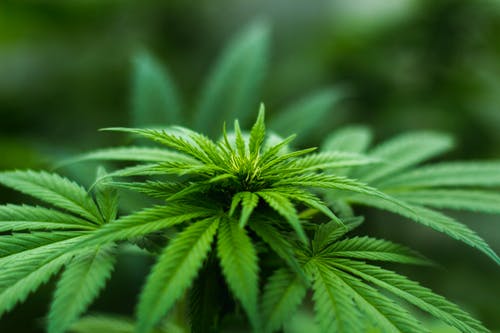
Posted: Dec 09, 2019

Doctors greenlight patients for medical weed, but it’s often “budtenders” and “marijuana consultants” who guide them through the lotions, gummies and smokable strains at dispensaries, creating a whole new wave of gaps in health records and patient-physician communications.
In many states, dispensary staff, often called budtenders, don’t have medical degrees. States vary in how much training they mandate — not that there’s much peer-reviewed science or prescribing guidelines anyway, largely because of long-standing federal barriers to research.
The result: a messy landscape of spotty patient-physician communication, inaccurate medical records and unknowns about health benefits even as medical marijuana becomes widely accepted by the public. It’s another outgrowth of the dissonance between the states’ rush to legalize medicinal weed, and the federal government’s persistent classification of marijuana as a drug as dangerous as heroin or ecstasy with no medical benefit whatsoever.
“There's a lack of scientific evidence right now for anyone to be able to state exactly how much dosage an individual needs,” said Dominick Zurlo, who directs New Mexico’s Medical Cannabis Program. Given barriers to robust science, he said, it’s the people working in the medical marijuana field and acquiring experience who “are going to be the people who have the best information.”
Thirty-three states plus Washington, D.C., now allow medical marijuana. At least 2 million Americans are registered medical marijuana users, according to data from 26 states, meaning the nationwide number is likely higher. Millions more use hemp-derived CBD, which is now legal in some forms and omnipresent, and does not have the “high” of marijuana.
State dispensary rules vary enormously, according to numerous interviews with state medical marijuana programs, experts and advocates. More than half the states with medical cannabis allow budtenders to help patients choose products to address anything from back pain to chemotherapy side effects. Other states require the dispensaries have pharmacists, doctors or a nurse practitioner on site, or on call — but those health professionals may not have a full picture of the patient’s medical history, medications and treatments.
And unless a patient brings it up, or their regular doctor asks, a patient’s care team may not know about their marijuana use, or whether a patient is using it in addition to, or as a substitute for, a prescribed treatment. The internet is full of unproven claims about marijuana being nature’s magical treatment for everything from cancer to diabetes.
All this is unfolding amid rapidly growing public acceptance of marijuana. Americans now view cannabis as much less harmful than alcohol, tobacco or e-cigarettes, according to a recent poll from POLITICO and Harvard’s T.H. Chan School of Public Health. That survey was done amid the outbreak of vaping-related illnesses, which has been linked to an additive in marijuana, mostly from the black market.
By Rachel Roubein
December 07, 2019
Source and Complete Article: Politico.com
Go-Wine's mission is to organize food and beverage information and make it universally accessible and beneficial. These are the benefits of sharing your article in Go-Wine.com


The Wine Thief Bistro & Specialty Wines is a locally owned small business in downtown Frankfort, IL offering world class wines in a relaxed, casual gathering spot for friends and family. Offering world class virtual tastings and touchless carryout.
https://www.twtwineclub.com/aboutus
Go-Wine 25 Great Wineries in US selection prioritizes quality, value and availability.
www.go-wine.com/great-wineries-in-america
Tasting wine is a nice experience, but visiting the places in which wine is made is a magic moment. Available in New York City for touchless pickup.